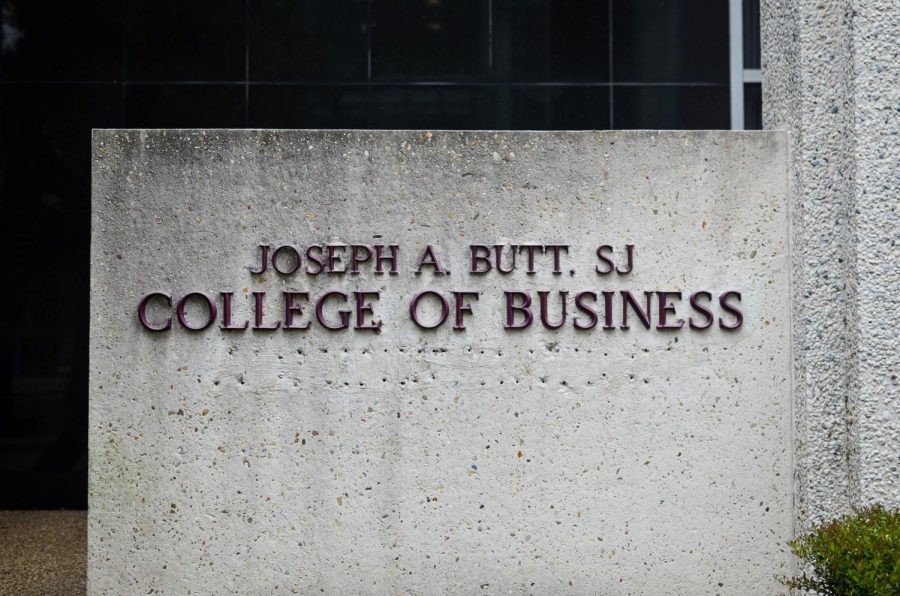Business school changes credit requirements
The College of Business sign on March 24, 2022. The College of Business recently reduced the credit requirements for their MBA program from 40 to 36 credit hours.
March 24, 2022
The College of Business is reducing the credit requirements in the MBA Program from 40 to 36 credits and adding three new courses to the program.
By reducing the MBA by four credits, the College of Business is looking to make strides and create a more accessible, customizable, and competitive MBA Program by redesigning the current curriculum and introducing true experiential capstones courses for graduate students, Dean of the College of Business, Michael Capella said.
The new curriculum lowers the number of credit requirements from 40 to 36 credits by removing multiple one-credit courses from the curriculum and replacing them with fewer three-credit courses.
Incoming and current students may opt-in to the program starting Fall 2022, according to Capella. For current students that have either completed more than half of the program or who are a student who graduates in Spring or Summer 2022, the opt-in option is not available.
The decision came after extensive research and a revision process of the MBA curriculum of other 20 institutions accredited by the Association to Advance Collegiate Schools of Business in order to make sure that the courses offered are within the standards of similar schools to Loyola, Capella said.
In one of the most significant changes, the new curriculum changed the “MGT B710 Operations and Process Management” three-credit course from a core course to an elective course that students are no longer required to take.
Another significant change in the curriculum is the introduction of the “BA B601 Applied Business Mathematics” three-credit course as a requirement for all students. Students can waive this required course if they have a business degree from an Association to Advance Collegiate Schools of Business accredited institution and a 3.0 GPA or above. Students may also waive this requirement if they have a degree in STEM, according to Capella.
The credit requirements of the already existing “BA B704 Ethics and Social Justice” 1 credit course, was changed into a three-credit course.
The last revision introduced is a new “Experiential Consulting Practicum” three-credit course in which students have three options to choose as a part of their capstone experience: a “Nonprofit Consulting Practicum,” an “IdeaCorps MBA Consulting Challenge,” and “Global Practicum.”
Students part of the MBA Program must complete one of these options and the “BA B750 Competitive Strategy” three-credit course, which was part of the past curriculum, before graduating.
The “Nonprofit Consulting Practicum” consists of a live consulting experience with a nonprofit organization allowing students to apply their skills to a real-world scenario while giving back to the community, Christina Morales, director of the graduate program, said.
The “IdeaCorps Consulting Challenge” is an entrepreneurial-focused start-up competition with other institutions in partnership with Idea Village, she said. This course allows students to experience the start-up process and collaborate with other students simulating an early-stage company, Morales said.
The “Global Practicum” is a global project in which a student will use their cumulative knowledge from their MBA program and apply it to a current issue within a multinational company, Morales said. All students are required to take a global immersion or go abroad as a part of the practicum.
“This is the product of a lot of research that we have done,” Associate Professor Todd Bacile said. “This is good for the program.”









